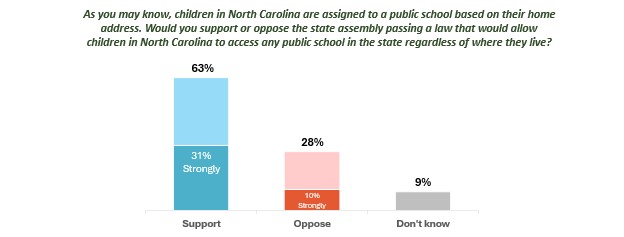A new poll by yes. every kid. foundation. finds that North Carolinians strongly support expanding education freedom in the Tar Heel state—empowering families with universal access to public schools and a greater ability to customize each child’s education to be more amenable to their unique needs.
Three-quarters of North Carolinians believe that change is necessary to improve education in the state, with one significant change being ending residential school assignment. Nearly two-thirds (63%) of voters support a law that would empower children to access any public school in the state regardless of where they live.

Aside from magnet schools in a few select counties, a child’s educational opportunities in North Carolina are limited by their family’s zip code, but the data make clear that voters believe the boundaries separating students from the public school that works best for them hold them and the overall education system back.
The public school system is such an important part of the state’s fabric that seven-in-ten voters believe that all students – including private school and homeschooling students – should have access to a public school on a course-by-course basis for instruction, electives, sports, and clubs. Majorities of all major demographic subgroups agree.
Voters also recognize the inherent truth that learning is not limited to within the four walls of a school, and, accordingly, 71% support the state assembly passing a law that would allow students to receive credit for learning outside of the traditional classroom.
“North Carolinians want families to have the power to find the educational options that best meet their kids’ needs,” said yes. every kid. foundation. Vice President of Strategy Matt Frendewey. “When it comes to guaranteeing access to public schools, voters believe strongly that kids should not be limited by their address, income, race, or ability.”
yes. every kid. foundation. conducted a random, online survey of n=600 registered voters in North Carolina from January 26-31, 2024. The survey was stratified based on the known demographic composition of the North Carolina voter population. As the survey utilized a non-probability sample from an online panel curated by Dynata, the credibility interval, similar to a margin of error, is +/-4.0%.
